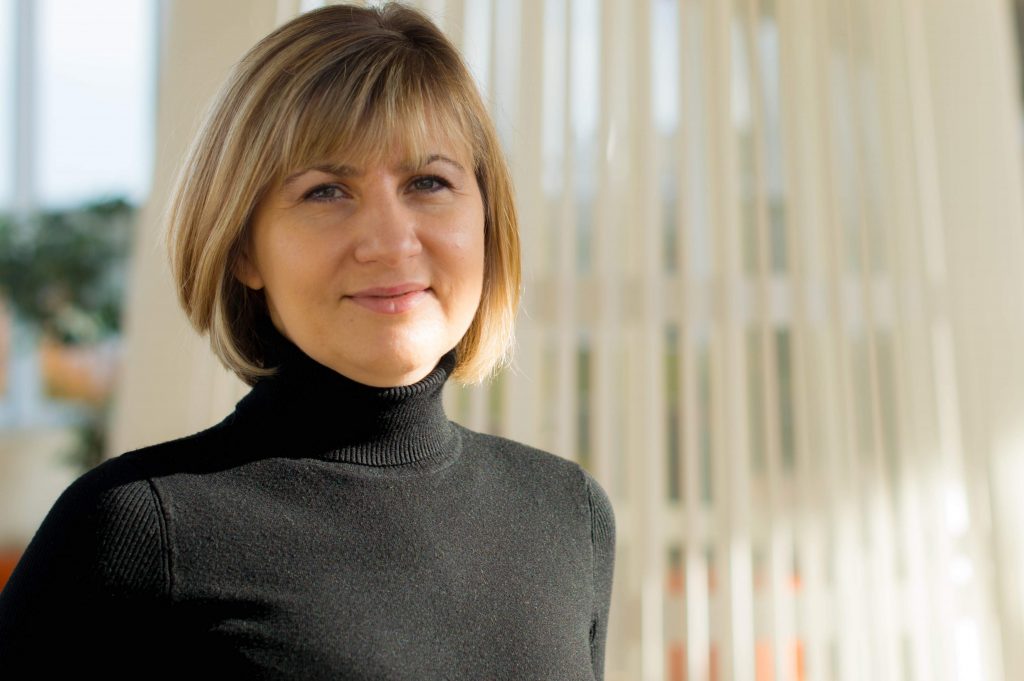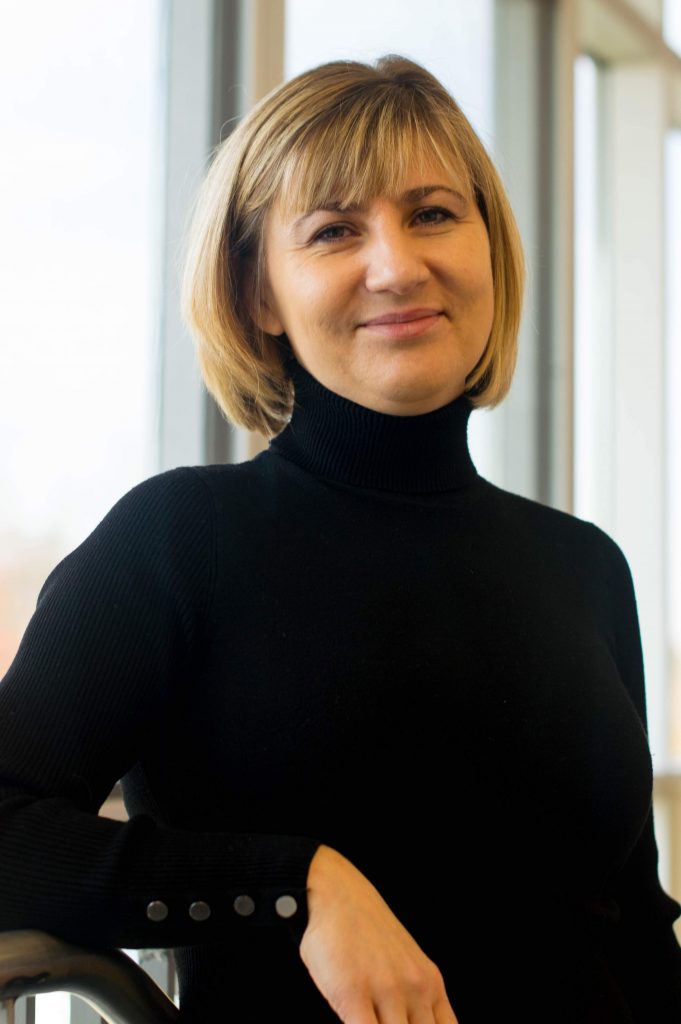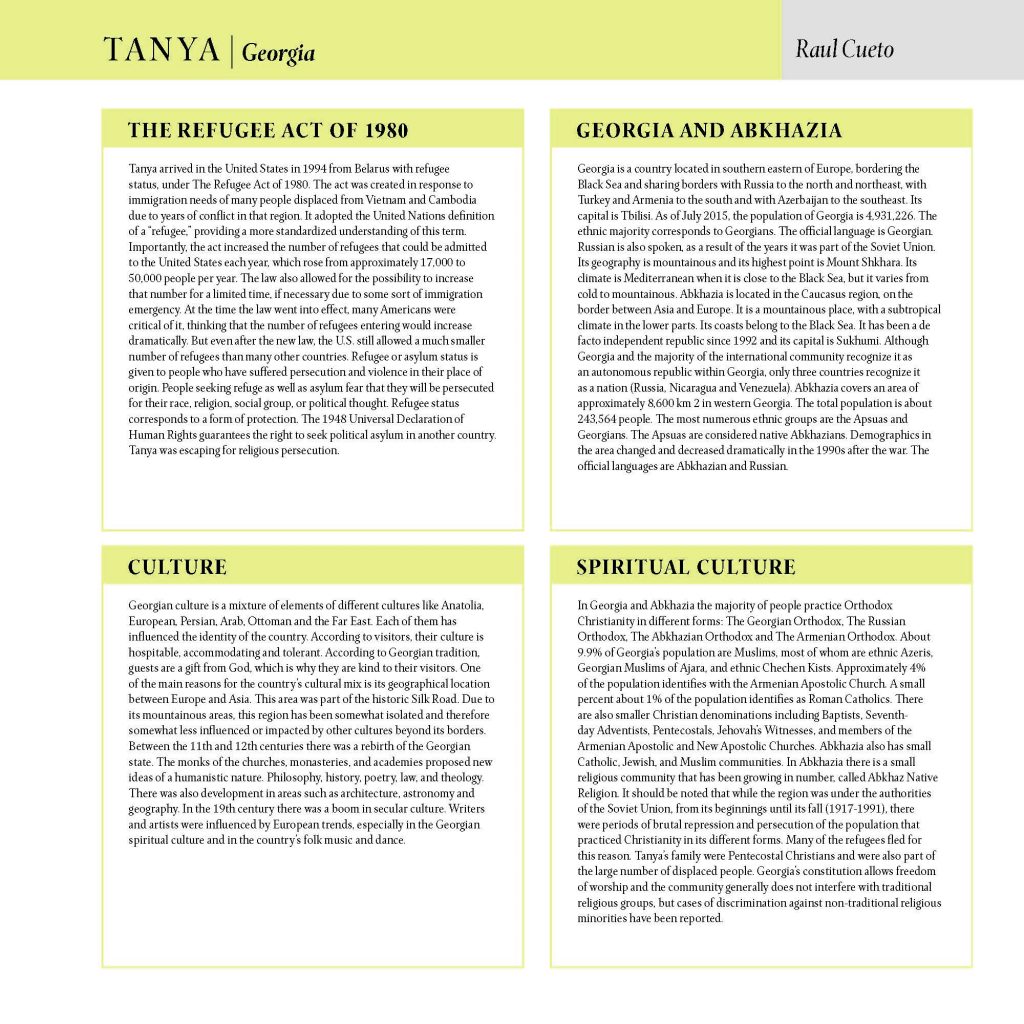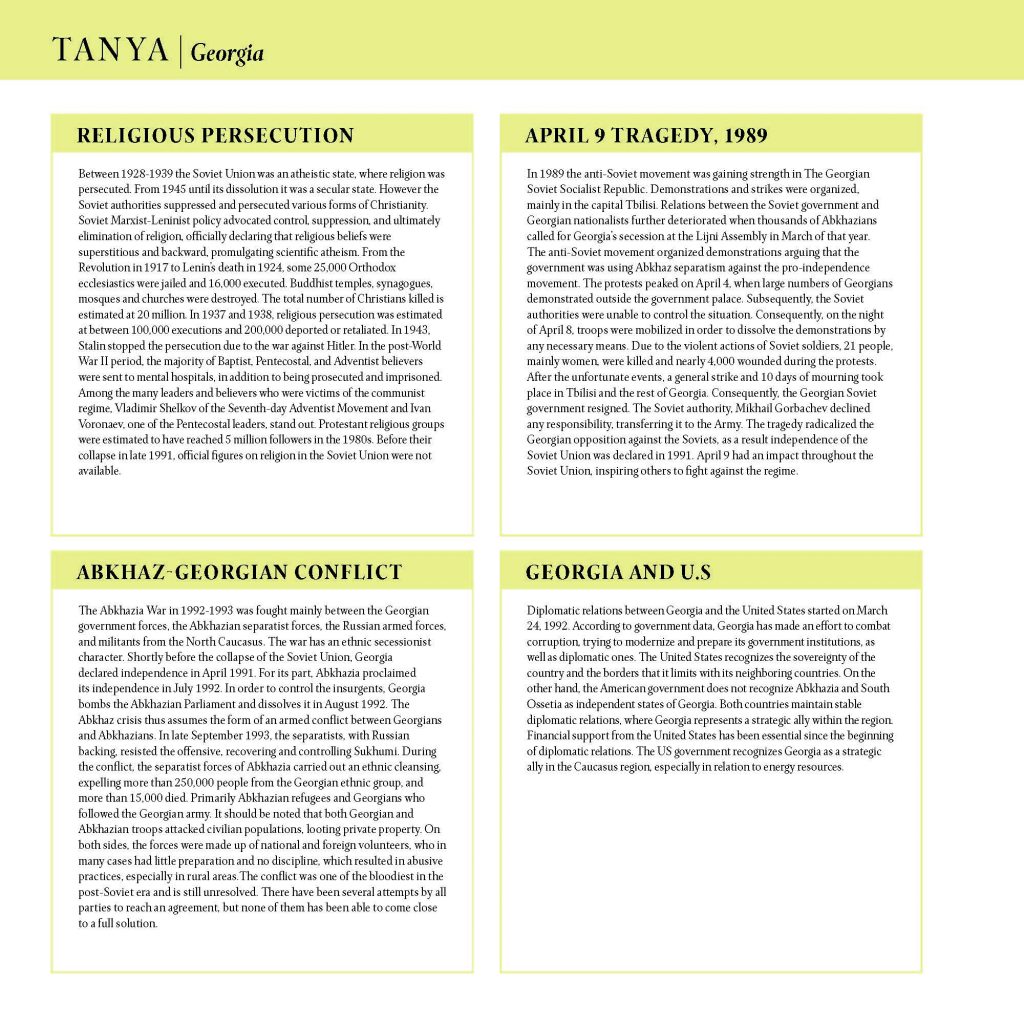
I came to the United States when I was nineteen. I grew up in Sukhumi, Abkhazia region, now what is called the country of Georgia. At the time I lived there it was a part of the Soviet Union. I come from a family of five siblings. I am the second to the last. I went to school and did all the normal things until August of 1992 when a civil war broke out in the region. The Soviet Union fell apart and the region where I lived and the region south of where I lived were two autonomous sub-republics of Georgia during the Soviet Era. After the Fall of the Soviet Union, these regions were seeking independence. There were some demonstrations going on between fall of 1989 and summer of 1992. I was fifteen at the time. One day I was with my girlfriend downtown trying to have a good time (eating ice cream and riding a carousel) but something felt odd. Soon we came home, and her mom was watching a TV and all of a sudden big announcements started popping up about where we were that the war broke out in the region. We were shaky, hugged each other, bid goodbyes and I ran home. My mother said to me and my sister that we needed to gather our stuff and as soon as dad comes home, we need to go.
Helicopters started flying. I ran outside and I saw a helicopter flying so low, literally just hanging over the street and going really slow with an open door and two guys with semi automatic guns, staring down. I was staring at them just frozen and I wasn’t sure what was going on. My mom shouted “Don’t go out, stay inside!” My youngest sister was nine at that time. My mom ordered us to pack our clothes. We packed up really quick and a few minutes later my dad and brother arrived from work. My brother was twenty-one and just returned from serving in the army. My dad made a decision that we will all go to Russia on one car and he will stay at home in Sukhumi. He was a pastor of the church and he wanted to stay and help people in the church and the neighborhood to leave the region.
A few hours after the war broke out in the region the border between Abkhazia and Russia was closed. My oldest brother and his wife lived about six hours from the border in the Krasnodar area and we were planning on going there. We went through multiple patrol stops by locally-organized militant groups. My mother was half Russian so we had a good way of communicating that we were Russian and pleaded to get us through to the Russian border. At the Russian Border by Sochi, the Russian military had a very tight patrol and did not allow anyone through. My youngest sister, my mom, my older brother and I sat right at the border for over four hours. Finally, we were told that we could go through but my brother would have to stay behind, go home and serve in the war. My mom pleaded and pleaded with different rank personnel and finally they let us all through. We drove to my oldest brother’s tiny two-room house and stayed there for about three months. We did not have a phone back home and all phone communications were dead anyways, so our communication with my father was cut off for a few months. We didn’t know if he was dead or alive.
The war of such a grand scale was a surprise to everyday citizens. There was an upheaval for about two weeks of riots and madness going on in downtown by the government building at the end of 1989, and then it was ok for a while. But in 1992 it was kind of odd, but it was not out of the blue. Things were already changing. Things were changing for the worse socioeconomically for people from middle and low socioeconomic classes. Under the Soviet Union the economy was heavily centralized and there were not any mom-and-pop stores or anything like that; it was all controlled by the government. In 1991 and especially in 1992 there were major food shortages in the stores. We had to get up early (five or six am) and stand in lines for hours to wait for a bread delivery. Those things were happening, but the civil war conflict was a bit of a surprise. I don’t think that people thought it would go that far, that it would actually happen.
Why did the war start? It’s not an easy question to answer and there might be multiple answers, depending on who is writing a history, but it was certainly related to the fall of the Soviet Union. From what I’ve read, my sense is that the region wanted independence. I’m not clear if it was seeking complete independence or just independence from Georgia. Abhkazia region is a very rich region and was a major contributor to the Georgian economy. There were many citrus plantations, tobacco plantations, vibrant tourism, and access to the Black Sea, which has its many benefits. Obviously for Georgia it would not be a resource they would want to lose. While it was called the Georgian-Abkhazian conflict, it was a lot larger.
When we talk about the immigration policies or just in general the policies of border control or who owns the land and resources, that becomes more complicated. I think both Georgia and Russia had a piece in it. Three or four months into the war, Russia stepped in and they were providing control of the area in terms of making sure people behaved civilly.
When the civil war started, people came from other parts of Georgia. They would raid through the houses take whatever stuff they wanted, rape women and young girls even kids, make the husband or brothers watch it and then kill them. People couldn’t stand up for themselves when there were ten or twelve men coming into a house where there is one man and three or four women/kids. Those groups were armed and the family was most likely not. In the evenings and at night especially, there was a lot of bombing of the area. When the Russians came in there, it was both the Russians and the Georgians and so it was a mad chaos. My dad was saying that they would go outside because they were afraid to stay in the houses because of the bombs. The neighbors tried to support each other emotionally or otherwise. Half of the houses on the street where I lived were destroyed. There was a great damage of buildings and infrastructure in the entire city. The war started in 1992 and lasted for over a year but it will probably take at least fifty years to rebuild it.
As we left Abkhazia, I did not finish the eleventh grade in school. In Russia, I started at the technical college. At that time, there were technical colleges and educational tracks for people who completed compulsory education, through eleven grades or for people who finished nine years of school. People who hadn’t finished compulsory education were required to take all the general subjects along with the specialized subjects at the college and at the end would get a technical degree. I was accepted into a technical college for clothing design track and started schooling. It was a very tough time. I stayed in Russia with my oldest brother and his family for three months. My mom’s mother lived in Belarus, so my mom traveled there with my youngest sister. Three months later she returned and took me to Belarus. My two brothers were staying there in Russia and I lived with my mom and my sister in Belarus. My mom tried to keep the normalcy. She found a technical college where I could continue the educational track I was doing in Russia and my sister went to school. During the last year of the technical college, I studied half time and half time was working in the sewing factory.
Things were a little different in Belarus, but somewhat the same as during the Soviet Union. Unlike during the Soviet Era, some tents began showing up along the streets where one could buy packaged food and clothes (mostly from Turkey). People were selling whatever they could sell to make some money. Finally in late spring of 1993, my dad got out from the war zone and came to Belarus. We were in a really dire situation. We didn’t have a house and lived with the grandmother’s sister in her two-room house. My dad started working at the factory almost immediately and there was a good chance that within ten years we might get a flat of our own.
Georgia was kind of a unique republic in the sense that it was so far removed from Moscow. In the 1980s when I was growing up it was already moving towards the end of the Soviet Union’s existence. There wasn’t much of a difference between how people were then and how they were in the early 1990s. During the Soviet Union, everything was planned and controlled by the government. You couldn’t start a business. You couldn’t do your own thing. You have to watch what you are saying and how you are behaving. You wouldn’t want to say anything negative about the government or the prime minister or communism or any communist leaders. It was very strict.

My mom is from Belarus and my dad is from Kyrgyzstan. After WWII my grandmother and my mom (as a teen) became Christian Pentecostals. Even though Soviet Union postured as an Orthodox country people were not really actively practicing religion and those who did were mocked at best, or persecuted. People were watching each other and telling on each other to the government agencies. Sometimes it wasn’t necessarily true stuff. The communist view was that “religion is the opiate of the masses.” Christian Pentecostals were viewed by the government as American spies or “dark unenlightened people.” People of my parent’s generation and older told the stories of how everybody was watched. The people who did “the watching” were not paid. They believed in the system and in some cases were getting some perks, like their kids or grandkids would go to such-and-such university or they would get access to the stores and be able to buy certain foods in quantities that were beyond the limits. Times were tough back then.
Christian Pentecostals or Baptists, Seventh Day Adventists, etc., were not allowed to go to the universities. You could finish school, and sometime technical colleges (depending on the region). My mom finished a two-year engineering college, which was an odd thing for a girl to do in 1950s. Her father was an engineer and she wanted to follow that path. She worked for a little bit, but when it became known that she was Christian, she lost her job. She would start a new job and as soon as people find out, she would lose the job. Furthermore, because the bosses were appointed by the Communist Party, they might lose their job by hiring “an enemy of people” or “American spies.” The place where she worked last, the boss said, “You have to leave because the Communist Party is not going to let you stay here at all and will do everything to put you in prison.” And so my mom started applying for jobs everywhere not even related to what she studied for. Like dishwasher, housekeeping, whatever. They wouldn’t hire her as soon as they heard her name. At that time, if an able citizen of the Soviet Union did not work for over two months, he/she would be sued and imprisoned for not working.
So my mom, at the age of twenty-three, upon the advice of someone from the Christian group, left to Kyrgyzstan. It was a place where it was a lot better, where it was not as controlled. So she left. A few months later, she met my dad and they got married and lived in Kyrgyzstan for a while. Because of high elevation, the climate didn’t work well for my mom healthwise and they moved a few years later to Belarus where her family was. Not much changed in Belarus. It was very tough for Christian Pentecostals. The house was raided by the militia several times; they were looking for Bibles or any Christian literature. My two oldest siblings were constantly mocked by teachers and peers. They were also held several times after school and the teachers tried to frighten them. One time teachers held my brother and sister in the basement talking bad about our parents and making them sign the “evidence” that they concocted otherwise they would sit there locked up until the rats eat them alive. What could the seven- or eight-year olds do, of course they signed the papers and then later told their parents. As a result, my dad was tried in court and the communist government wanted to take us to custody because my parents weren’t properly raising kids as communist citizens. There were people practicing Muslim religion as well, especially in places like Kyrgyzstan, Tadjikistan, and Uzbekistan and Azerbaijan. People also were hush hush about that. All religions other than Orthodox. Even the Orthodox, if you started to go to church regularly, you get on a watchlist and get called into the government offices to be disciplined. My parents through distant relatives in Georgia found out that the Communist regime while still there was not as egregious and people are not be persecuted. In fact, there were two official Baptist and Pentecostal churches in Sukhumi, so my parents decided to move there.
My mom’s sister immigrated to the US, Portland Oregon in 1989 and when the civil war started and she found out that we were in Belarus without a house and a very bleak prospects for the future, she helped to start the immigration process. We got refugee status and immigrated here in 1994. With the refugee status we were qualified for certain benefits. Our tickets were purchased by the US government, but it was a loan. So we had to pay it back within three years. Having that initial help, though, was a really big deal for us. We got free healthcare for eight months and food stamps. We lived in my aunt’s place for two months and soon my parents started working (minimum wage manufacturing jobs) and we moved into an apartment. My cousin and his wife helped us out by getting an apartment in their name. We had nothing. We had no money. We brought two bags for each person, that’s all we got.
I actually had learned English in school in Sukhumi, but it was ‘British English.’ I was four months from finishing my associate’s in Belarus and since I didn’t finish it, I didn’t have a degree of any kind. Upon the advice of my aunt, I went to the PCC Ross Island building to see if I could actually start going to school to finish my education and placed into level five. There was tuition and nobody knew from my family how the college or educational system worked and how to apply/receive any financial aid. One thing was clear, my parents did not have money to pay. Through IRCO (Immigrant and Refugee Community Organization), they found out that I could go to high school here since I was under twenty-one, so I ended up going to David Douglas high school for two years.
While growing up, I didn’t know much about the United States other than what I learned in geography class. We didn’t have any access to literature or movies about the United States before late 1980s. When it became available the things that I saw about the US were the things you’d see on TV, like Miami or L.A. or San Francisco. My expectation was that all the US was like that. Big giant buildings, people everywhere, cars everywhere. And Oregon was a shocking experience. Where are we? Where is the city? I was surprised and at the same time scared by how friendly people were, especially in stores. “Can I help you?” I couldn’t really talk to them, I couldn’t have a conversation. I felt dumb. I couldn’t say anything. But at the same time having people smile at you was certainly a different experience. During and after the Soviet Era people on the streets typically were not looking at anyone. There were a lot more people on the streets walking and using public transportation. People would have sad, gruesome, preoccupied, or angry face. People that you encountered here would smile at you and even if they don’t care for you they say, “how are you?” That kind of stuff was unexpectedly pleasant.
I did have some negative experiences when I was in high school. When I went to David Douglass there were over a thousand students and just about fifty students were immigrants. Now it is so diverse. We had tiny ESOL classes, with Latino and a few Asian students mostly. There were maybe a dozen Russian-speaking students in the school. Our history classes would have debates on different topics but I couldn’t participate as my English was not at that level. I get it, they are kids and they want to do well and here I am, I can’t contribute much of anything. Someone in groups would say that they wished I wasn’t in their group, or sometimes kids would say, “Go back to your Russia.” So, yes, I did have experiences like that.
Yes, immigrants are leaving for a better life, but in a lot of cases it is also survival. Almost half our church from Sukhumi immigrated in 1989. My dad was a strong opponent. He did not want to go. If it were not for the war he would not have gone. He said that he came here because of my future, and my sister’s.
We came in 1994. I became a citizen in 2004. You can start applying after five years. At that time I was going to PSU. I was working full time. Because of my parents’ income they were on the very cusp for qualifying for financial aid or loans. So I didn’t get financial aid and passed work-study for a forty-hour regular job. I had to continue working and going to school and paying along way. It took me three years to get my associates. After my associates I transferred to Portland State University for a Bachelors and I finished in 2003. Next step was to get my citizenship.
I was so wounded, honestly, until about six or seven years ago, I would not be sitting here or talking about this life experience. I did not want to see that place again because of the war that shaped that period of my life. Knowing when I saw the pictures and saw what was happening on TV and how it isn’t the same anymore over there, I didn’t want to be talking about that part of my life anymore. But on a much deeper level, it was emotionally and psychologically heartbreaking and I didn’t want to resurface it. It’s certainly painful and traumatic and it takes a long time to heal.
It is important to hear other humans’ stories. Some people may not want to share because it is too traumatic. Whatever can be shared, it is very powerful for people who have not been through things like that to be able to listen to authentically and empathetically. We tend to generalize and not see people as individuals sometimes. Stories differ. There are some themes, but there are differences in why people are doing what they are doing. My experience gives me a very special connection and appreciation for people who are coming from countries where a war has been taking place. Who wants to stay in place where your daughter is going to be raped, or where people are being killed, where it is not safe, where there seems to be no end to the chaos? It is a very concerning thing for parents. Most, if not all of the time they are doing what is best for their families and for survival and better future. And there’s always a larger context. National and international layers. It’s very complex.
More on the history and culture of Georgia by Raul Cueto:



